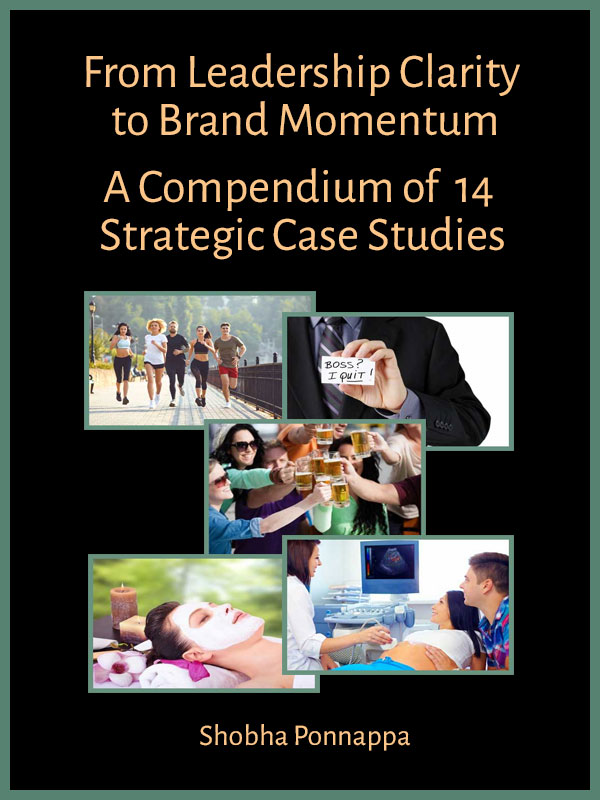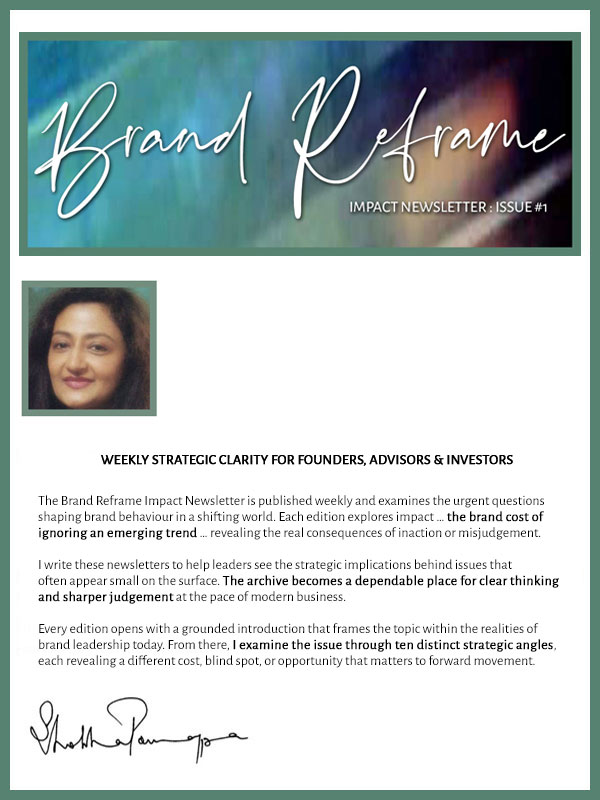
I answer 6 tough questions about why cautious messaging weakens brand power … and how bolder differentiation can shift the game.
I’m often approached by brand owners who say, “We’ve worked hard to craft clear, positive messaging … so why aren’t people responding?” The truth is, clarity without character rarely cuts through. In this post, I answer 6 tough questions I often hear when brands choose safe, agreeable language over bold, defining distinctiveness … and slowly drift into irrelevance.
For many long-standing brands, safety feels synonymous with trust. Years of careful language, non-controversial tone, and broad appeal have helped them avoid risk … so why change now? But what once built credibility can now blur distinction. In saturated markets, sounding like everyone else means disappearing into the noise … no matter how clean or consistent your execution might be.
The temptation is understandable. When a brand has weathered decades, there’s a natural instinct to protect that reputation. But brands that cling too tightly to their historical tone often fail to notice how much the world around them has shifted. What once felt comforting now feels complacent. Safety, when overdone, leads to sameness.
It’s often copy that sounds polished but lacks edge. Think: “We deliver quality service with care,” or “We’re here to help you succeed.” While technically accurate, such lines could apply to thousands of brands. They don’t express your unique promise, culture, or conviction … and they certainly don’t inspire conversation or loyalty.
I’ve audited dozens of websites and seen pages filled with jargon, diluted benefits, or pleasant-but-empty phrases. Safe messaging is most visible when no single sentence stays with you after reading. You walk away having understood everything … and remembered nothing. That’s the quiet risk brands rarely see coming until it’s already happening.
Messaging that avoids tension also avoids impact. Brands that never take a stand, share a belief, or challenge the norm quickly lose cultural relevance. If your audience can’t tell what you stand for, they’ll choose someone who’s clearer … even if they’re smaller, newer, or less established.
Internally, the effect is just as damaging. I’ve seen marketing teams struggle to brief agencies, train sales staff, or explain value without leaning on overused platitudes. When a brand refuses to express an opinion, it not only fails to rally customers … it also fails to energise its own people. Your message must not only inform … it must move.
One client I worked with was a respected organic food brand. They used phrases like “sustainably sourced,” “farm fresh,” and “clean label” across their packaging. But so did every competitor in their space. Despite being pioneers in the category, their identity had been flattened by sameness. Every line had become an echo of someone else.
When we went back to the origin story … why the founders began, what fires them up, what values they refuse to compromise on … we found a sharper truth. We reframed the messaging around unflinching transparency, small-batch ethics, and the brand’s refusal to grow beyond a point that would compromise quality. Sales rose … not because the product changed, but because the voice finally matched the soul.
Clarity doesn’t mean playing it safe. It means expressing one sharp idea with no confusion. The goal is to cut through, not water down. Distinctiveness comes when your messaging reflects your brand’s lived truth … not just its features, not just its benefits, but something only you can say in the way only you can say it.
In fact, clarity becomes more powerful when anchored in opinion, tone, or belief. Saying “We believe X … and here’s why” invites connection and trust. You don’t need wordplay or cleverness … you need resonance. Most of the world doesn’t remember the smartest thing a brand said. They remember what that brand stood for. The best brands say just one thing … but say it so well, no one else dares copy it.
Start by revisiting your origin story. What did your brand challenge, change, or believe when it began? What truths do you know that others hesitate to say? These often hold the seeds of a sharper message. Then test small shifts: a braver social caption, a stronger ad headline, a more honest email subject line. Safe language creeps in slowly … so push back slowly but surely.
You don’t need to become loud … just unmistakable. The goal is not provocation but precision. Say something that only your brand could have said, in a voice that no other brand would dare mimic. That’s the start of momentum. And once your voice sharpens, so does your market memory, team energy, and buyer conviction.
If these questions feel uncomfortably familiar, your brand may be polished … but not persuasive. The good news? It doesn’t take a full rebrand to restore voice. A few strategic shifts in messaging can rebuild memory, magnetism, and meaning.

“Brand momentum rarely returns through optimisation or activity. It returns through a breakthrough idea that recentres the brand and restores forward movement.”
Shobha Ponnappa
Download the 14-case collection and receive weekly insights on leadership articulation and brand momentum.
Get my free Case Studies Compendium. Leadership clarity sharpened, strategy articulated, and brands set back into motion.

You’ll also get my fortnightly Brand Reframe newsletter. with smart insights, distilled thinking, and focused ideas to help your brand.

Just fill in the form to join. Be part of our circle thriving on brand clarity, good judgement, and several game-changing tips.